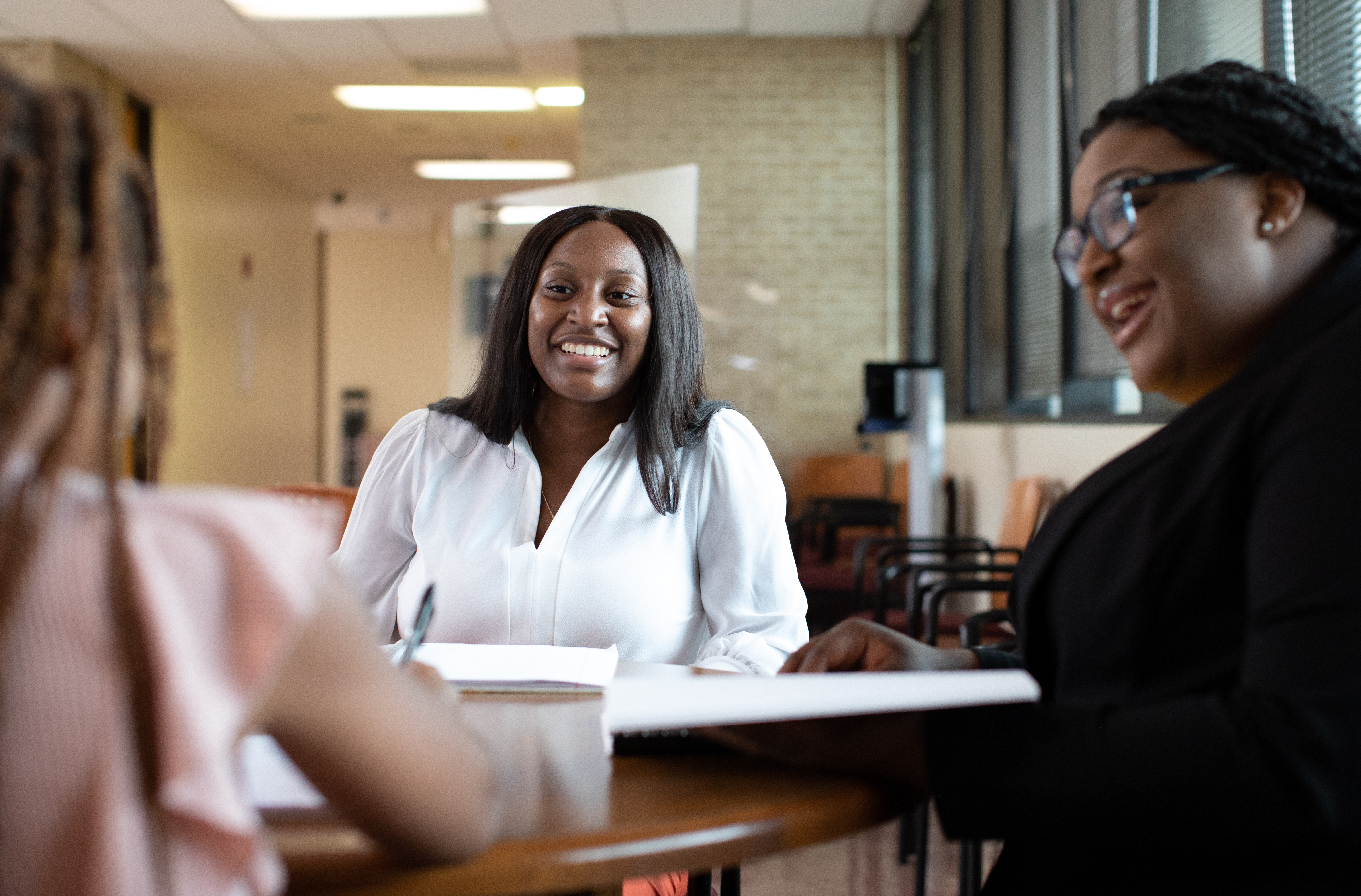Law Center News
New course unpacks hidden truths within the jury process

Students enrolled in Southern University Law Center’s new course, Law and Racism, were busy during the summer of 2021. SULC associate professor Angela Allen-Bell introduced Law and Racism as a possible new class to the Law Center which required students to familiarize themselves with a specific area of law and how it intersects with racism and microaggressions.
“The legal academy isn’t always attentive to the way law has both helped and hindered the fulfillment of the constitutional and democratic aims of the country. The mission of Southern University Law Center imposes upon it a duty to disrupt that architype and to do so boldly and unapologetically,” said Angela Allen-Bell. “Law and Racism is one manifestation of this Law Center’s fidelity to its mission. The course exposes law students to the various ways race, bias, inequality and supremacy intersect with law and policy. It also enables students to explore the interrelationships between trauma, microaggressions and race and the ways they impact individuals in legal settings and beyond.”
Allen-Bell is a highly respected legal scholar and expert on civil and human rights. Most of her work focuses on social and restorative justice and the interplay between race and justice. She envisioned this course to be more than a class but a transformational experience. Revolving discussions throughout each week shined a different light towards the idea of race and how deep it runs through the fabric of America’s legal system. More importantly, each student was encouraged to have a voice and share their story, providing an even deeper perspective on the human response to a systemic issue.
The six-week course familiarized students with the historical relationships between law, race and racism in the United States; introduced students to the historical and current legal and policy doctrine relating to gender, sexuality, healthcare, the constitution, race and racism; fostered independent thinking about the relationship between stereotypes, law, race and racism; enabled students to explore interrelationships between trauma, microaggressions and race and ways they impact individuals; and equipped students with cultural competency/literacy skills. It covered topics that included Meaning of Race and Racism, Images and Stereotypes, Environment and Race, White Privilege, Microaggressions and Race, Healthcare and Race, Tort Law and Law, Advocacy and Race, and 1st Amendment and Race to name a few.
Law Center students dedicated their summer to the course and at the cumulation of the course organized a successful symposium that amplified the importance of the 6th Amendment to the U.S. Constitution and how fair trials are not being implemented through the jury process for people of color.
As part of the course requirement, students had to be published and produce various projects on one of the themes in the course. Projects ranged from videos to websites to op-eds to a final class project. The “Federal Jury Symposium” was organized by the class to discuss the issue on the lack of diversity from people of color chosen to sit on a jury. In preparation for the event, students wrote articles and op-eds to promote the symposium.
“Personally, I produced two opinion-editorial pieces that dived into the revolving issue of the symposium. Once believed to be just one facet of the courtroom setting, the jury process proved to be another brick in America’s racially systemic wall dividing Black Americans and other marginalized groups from true representation in the justice system,” said Pedro Trevino, Jr.
The symposium featured speakers such as Will Snowden, founder of the Juror Project; Tom Aiello, professor at Valdosta State University; Sheri Johnson, assistant of Clinical Programs at Cornell Law School; as well as Allen-Bell. The group also collaborated with Vera Institute, Louisiana Capital Assistance Center, Promise of Justice Initiative, Center for African and African American Studies at Southern University New Orleans, and VOTE.
Overall, the course and symposium were a riveting experience for students under the direction of Allen-Bell. She hopes to make the class a part of the annual class schedule brings real-life experience into the classroom.
RSS News Feed